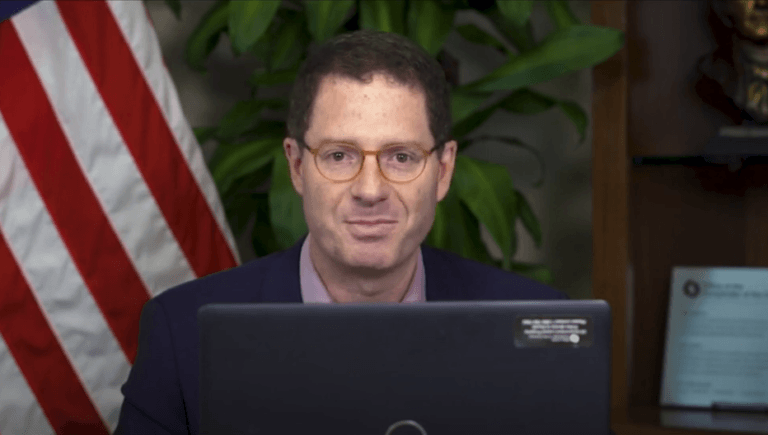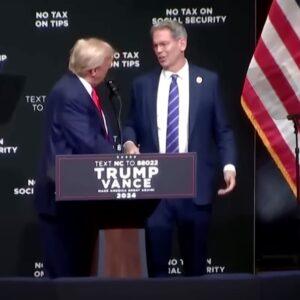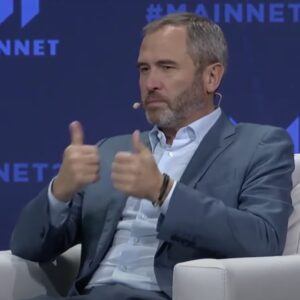Brian Brooks, the CEO of Bitfury Group, which is Bitfury Group is a “leading full-service blockchain technology company”, talked about crypto on day two of the week-long 2022 Aspen Ideas Festival (AIF) being held in Aspen, Colorado.
Before joining Bitfury in October 2021, Brooks was the CEO of Binance US and before that he worked at the Office of the Comptroller of the Currency (OCC), where he was the Acting Comptroller between May 2020 and January 2021.
The OCC is “an independent bureau of the U.S. Department of the Treasury that charters, regulates, and supervises all national banks, federal savings associations, and federal branches and agencies of foreign banks. Its goal is to ensure that the banks it supervises “operate in a safe and sound manner, provide fair access to financial services, treat customers fairly, and comply with applicable laws and regulations.”
Brooks’ comments were made on June 26 at an AIF panel, highlights of which were featured on CNBC’s “Crypto World” show.
Regarding volatility of cryptoasset prices, Brooks said:
“The biggest issue that I always try to focus on is cryptocurrencies are really not about currency. And the biggest misunderstanding of this whole discussion is the belief that if crypto is not doing a great job of replacing the US dollar, then crypto is failing in its mission.
“And what I what I think will talk about a little bit today is the idea that most of crypto is about replacing the centralised banking system with networks that allow user control versus bank CEO control. The crypto assets that have prices are more like internet stocks. It’s more like you bet on Google if you think there’s going to be high internet traffic and you short Google if you think people are gonna go back to the post office, right?
“But it’s not that Ethereum or Ripple or anything else is trying to replace the US dollar. It’s trying to replace a system of transmitting value, and we’ll talk a lot more about that. So, for me, the prices are not that relevant any more than Google’s volatility is, and in the early days of Google that was super volatile.“
As for stablecoins, he had this to say:
“Stablecoins are actually the tip of the spear on crypto regulation, and it’s the one area where I think there is weirdly a really strong bipartisan consensus. I mean, there’s not a lot of that in the world today. So, man, bipartisan consensus on anything is a good thing…
“When I was the controller, I signed the first regulatory guidance that defined what a stablecoin was that would be allowed inside the US banking system. And what I said was that a stablecoin to be in the banking system has to have three features.
“First, it has to be backed by risk-free assets… It has to be backed by risk-free assets, meaning insured bank deposits and short-term treasuries and nothing else. Second, it had to be redeemable on demand and at par. So, if you meet those three conditions, in other words, if you really are a traveler’s check, except you’re operating under the internet, you’re a stablecoin...
“Why do you care though?… You should care because in the future stablecoins will become what people think of bank deposits today… These would be banking deposits that don’t have a minimum balance fee, don’t have a monthly maintenance fee, don’t have a transaction fee. That is why stablecoins are things that you will hear a lot about in the future even if you’re hearing about the first time today.“
On 4 December 2020, during an interview on CNBC’s “Squawk Box“, Brooks, who was at the time Acting Comptroller at the OCC, said that “nobody is going to ban Bitcoin.” Brooks’ comments about Bitcoin and cryptocurrencies in general came during an interview with Squawk Box co-anchors Melissa Lee and Joe Kernen.
Brooks told Lee:
“Melissa, you know rumors abound within Bitcoin more than almost any other place, but I would tell you is we’re very focused on getting this right. We’re very focused on not killing this, and it’s equally important that we develop the networks behind Bitcoin and other cryptos…”








